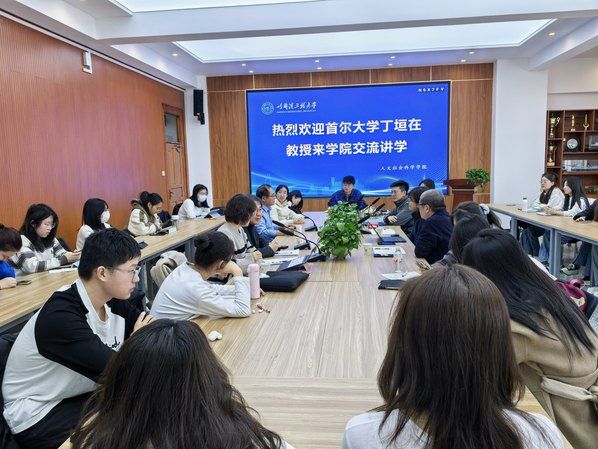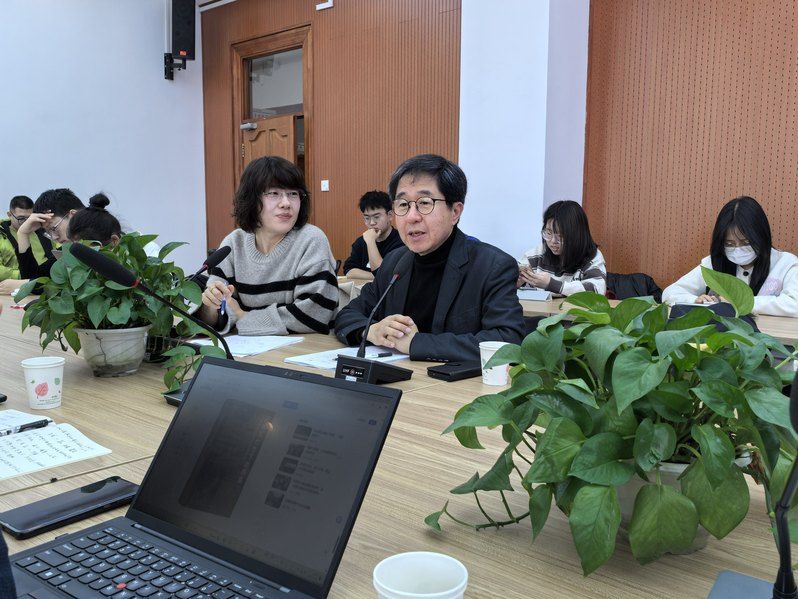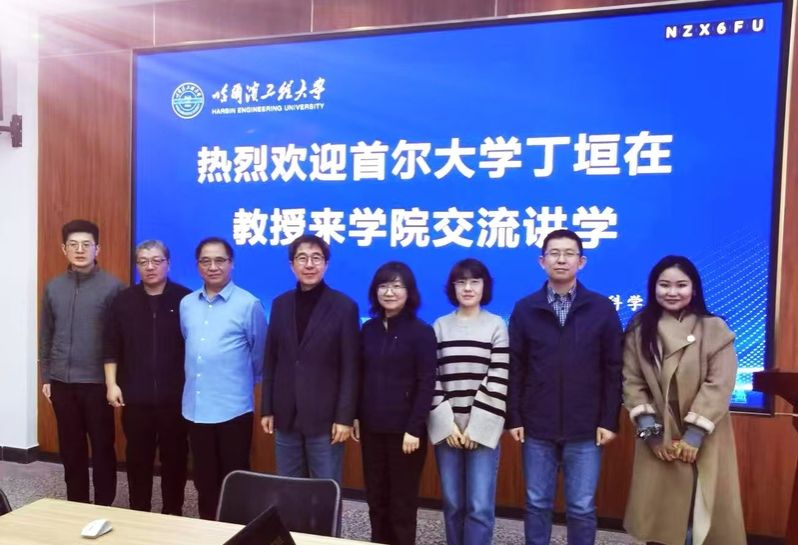On the morning of March 16, 2025, at 9:00 a.m., at the invitation of the School of Humanities and Social Sciences at Harbin Engineering University, Profes sor Ding Hwan-jae from the College of Humanities at Seoul National University delivered an academic lecture titled "Is Joseon Confucianism Zhu Xi’s Philosophy? — With a Discussion on the Transmission and Development of Confucianism in Korea." The lecture was held in Conference Room 311 of the Main Building. Dean Zheng Li, Vice Dean Du Yupeng, and Professor Chai Wenhua, a distinguished visiting scholar at the School of Humanities and Social Sciences, attended the event, along with over 40 faculty and student representatives. The lecture was moderated by Professor Zhang Jijun, with Associate Professor Duan Lantao from the School of Marxism at Heilongjiang University providing live translation.

Professor Ding Hwan-jae is a renowned contemporary Confucian scholar in Korea, particularly known for his research on Neo-Confucianism. Addressing the traditional view in Korean academia that equates Joseon Confucianism with Zhu Xi’s philosophy, Professor Ding used the example of Yi I, a representative Confucian scholar of the Joseon period, to analyze the differences between Yi I’s philosophy and the teachings of Zhu Xi. Through an in-depth exploration of Yi I’s philosophy, Professor Ding argued that Yi I’s thought demonstrated critical engagement and innovation with Zhu Xi’s philosophy in key areas of Song-Ming rationalism, such as the relationship between principle (li) and vital force (qi), the distinction between the human mind and the moral mind, and the practice of self-cultivation.

Drawing on the theory of perception in traditional Chinese philosophy and incorporating the vital-force (qi) philosophy of Zhang Zai, Professor Ding reinterpreted concepts such as "the unity of principle and its manifold expressions," "the nature of qi and temperament," "the distinction between the manifested and the unmanifested," and "the mind as the unifier of nature and emotions." He proposed new perspectives, including "the interpenetration of principle and vital force," "nature as the synthesis of principle and vital force," "the mind as vital force," and "the integration of investigating principle, maintaining reverence, and practicing diligently." These views highlight significant departures from Zhu Xi’s philosophy, both theoretically and substantively. Professor Ding concluded that, rather than labeling Joseon as the "Kingdom of Zhu Xi’s Philosophy," it would be more accurate to characterize it as a "school of mind and vital force (xin-qi)," thereby offering a compelling response to the longstanding debate in Korean academia about the nature of Joseon Confucianism. His insights provide a fresh theoretical framework for re-examining the transmission and development of Confucianism in Korea and East Asia.

Professor Ding’s lecture was warmly received by the attendees. During the interactive session, students actively posed questions and engaged in lively discussions with Professor Ding on topics such as Confucian thought, Korean culture, East Asian society, feminism, educational systems, and study-abroad policies. The enthusiasm and engagement of the students were highly praised by Professor Ding.
